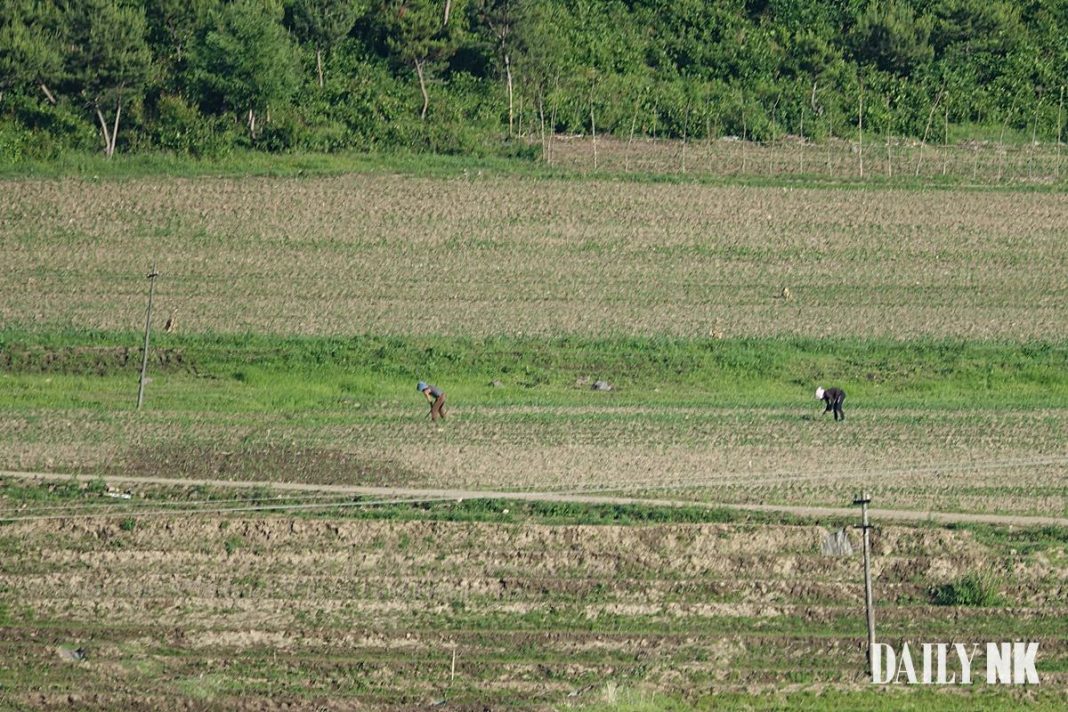On Monday, Daily NK learned that the North Korean government has banned the private sale of recently harvested grains as a result of poor agricultural yields. According to sources, guards have even been stationed at major train stations in order to enforce the ban. A similar ban was issued last year as well.
Daily NK spoke to a source from South Pyongan Province, a major grain-producing region. “After the typhoons swept through the country in September, the authorities announced that they would penalize the private distribution of food supplies,” he reported. “Following the fall harvest, they posted guards at major stations like Sunchon and Pyongsong.”
The North Korean authorities apparently decided to monitor food distribution levels after Typhoon Lingling had swept through the country in September and wreaked havoc. This year’s outlook for North Korea’s grain harvest had been poor to begin with, due to droughts and other natural disasters.
WHOLESALERS FACE OBSTACLES DUE TO BAN
The majority of wholesale traders in foodstuffs are allegedly trying to circumvent the ban by bribing officials at both train and police stations, or by finding ingenious ways of transporting their goods. Sellers who haven’t engaged in such activities, however, are finding themselves burdened with unexpected expenses.
“Sometimes, grain deliveries end up at odd locations, due to the measures to enforce the distribution bans on grains like corn and rice, like the posting of guards at stations,” a source told Daily NK. As a result, he said, “grain shipments will be tossed off the train, and it costs the sellers even more to retrieve them and deliver them properly.”

Last month, six wholesalers, who had rented a cargo car on a train to deliver rice and corn from Sunchon to Kaechon, found themselves in a similar situation. They had been unable to offload their deliveries because of the guards that had been posted at the station. Eventually, they just drove past Hwangri Station and managed to unload their sacks of rice just before Pongchon Station.
However, a source from North Hamgyong Province explained that the same tradesmen faced several difficulties once they tried to transport their rice to its final destination. “They used to buy corn from the farms of North Hamgyong Province,” the source said. “But this time, they underwent a series of ordeals because of the guards at Kimchaek Station. They eventually had to unload their goods in between stations.”
Sources explained to Daily NK that railway workers will take bribes and guarantee a safe passage of goods. However, these workers often succumb to the authorities and don’t always keep their promises.
INFLATION MAY RESULT FROM RESTRICTIONS
The ban, however, probably won’t be enough to fully stop the flow of all grains since wholesale traders play a crucial role in the food supply for the North Korean population. Nevertheless, the ban might lead to an inflation of rice prices – and thereby worsen the already existing food shortages.
North Korean authorities enacted a similar ban last year when natural disasters had a negative impact on harvests. The authorities attempted to prevent any redirection of supplies from the national stocks, which are reserved for the army, munition factory workers, government officials and Pyongyang residents.
*Translated by Violet Kim and edited by Laura Geigenberger
Please direct any comments or questions about this article to dailynkenglish@uni-media.net.


















